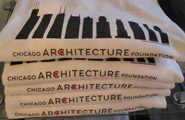Chicago Architecture Foundation Case Uses Pay Per Click Ads to Establish Jurisdiction
 The Case:
The Case:
Domain Magic LLC, a Florida-based company, registered the domain chicagoarchitecturefoundation.org. They developed a website about Chicago-area attractions, then passively generated revenue through Google AdWords.
The Chicago Architecture Foundation sued for trademark infringement in Illinois. Domain Magic filed a motion to dismiss the case for lack of personal jurisdiction, noting they had not conducted business in the court’s jurisdiction.
The Inevitable Questions of Jurisdiction:
Internet law cases regularly contain challenging issues of personal jurisdiction; that is, the determination of whether a specific court is authorized to hear a case. Judicial jurisdiction falls into three main types: personal jurisdiction (whether the parties are subject to court authority); territorial jurisdiction (the geographical area over which the court has authority); and subject matter jurisdiction (different courts hear specific types of cases).
The distributed nature of the Internet, and the variety of participants and transactions that take place on it, can make jurisdiction a vexing question. So why not simply give any court jurisdiction if someone uses a site in its territorial jurisdiction?
Such “universal Internet jurisdiction” would hold online publishers of all sizes to an unknowable variety of laws, since jurisdiction would be determined by the unpredictable jurisdictions in which future visitors might reside. As much business is conducted remotely, the courts established the idea of a sliding scale, based on how actively and purposefully companies have engaged in business within an area.
The Sliding Scale of “Purposeful Availment”:
The courts have drawn on the principle of “purposeful availment” to determine if a party can be sued in a specific jurisdiction. Courts consider where acts were perpetrated; if defendants actively engaged in business within the jurisdiction; and if it is reasonable to expect the defendant to answer charges there.
This sliding scale was established in Zippo Manufacturing v. Zippo.com, in which the defendant regularly sent online newsletters to 3,000 Pennsylvania residents. This level of interactivity satisfied the court that Zippo.com had purposefully availed itself of conducting business within the court’s jurisdiction.
Websites that publish information without inviting user interaction are traditionally immune from jurisdictional claims. However, when toll-free phone numbers and forms encourage users to engage in an active consumer relationship, the likelihood increases that remote courts will claim business has been conducted within their jurisdiction.
Using Ads to Support the Finding of Jurisdiction:
In the case of Chicago Architecture Foundation v. Domain Magic, Judge Charles R. Norgle denied the motion to dismiss, ruling that the defendant had “clearly transacted business within the state of Illinois, as it profited from individuals clicking on the hyperlinks that were posted on the offending website.”
Given the widespread use of Adwords on websites, the Court’s analysis could be a significant step toward giving courts universal jurisdiction over business on the Internet. Website operators can anticipate future cases calling site owners to answer in courts across the United States, based on the ads that appear on their sites.

 The future of digital experiences will be built by strategists who grasp the full array of emerging business, social, and technical models. Specialties in user experience, branding, application design, and data science are laying the foundation for richer user experiences and business models breakthrough products and revenue based marketing.
The future of digital experiences will be built by strategists who grasp the full array of emerging business, social, and technical models. Specialties in user experience, branding, application design, and data science are laying the foundation for richer user experiences and business models breakthrough products and revenue based marketing.
4 Responses to "Chicago Architecture Foundation Case Uses Pay Per Click Ads to Establish Jurisdiction"
October 7, 2020
Spend some time chatting with a hot shemales at transen kontakte and you will not regret it…
January 27, 2021
You can find fine looking transgirls if you visit transe
February 3, 2021
Girls from hausfrauensex bayern are really the hottest around so check them today!
April 25, 2025
Lust auf eine Hausfrau? Fühlen Sie sich zu sexy, reifen Frauen hingezogen? Diese findest Du auf der Webseite: https://beste-hausfrauen-sex.de/ Starte mit einem heißen Sexchat und dann vielleicht unverbindlichen Sex in Deiner Nähe?